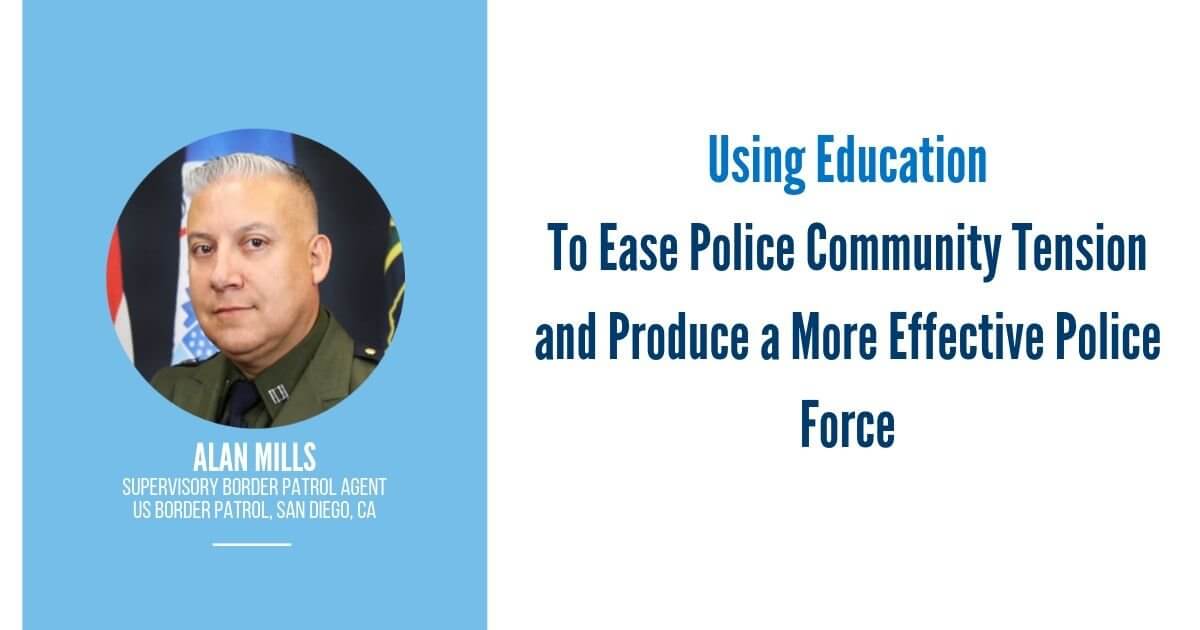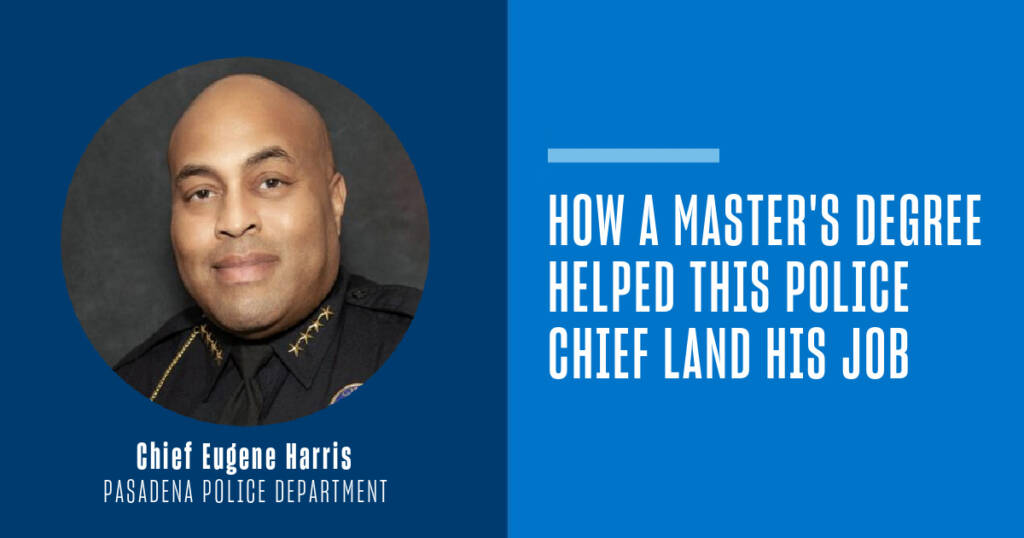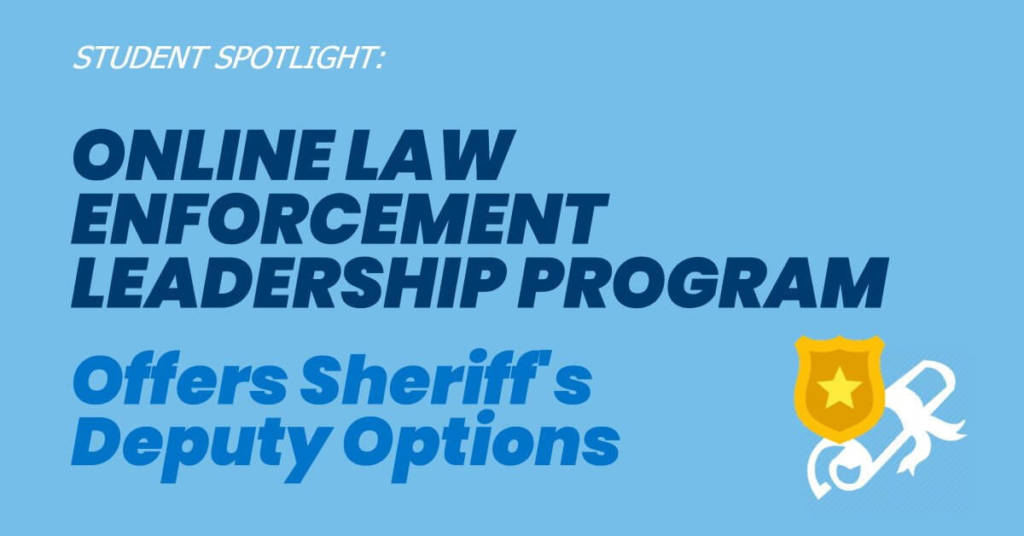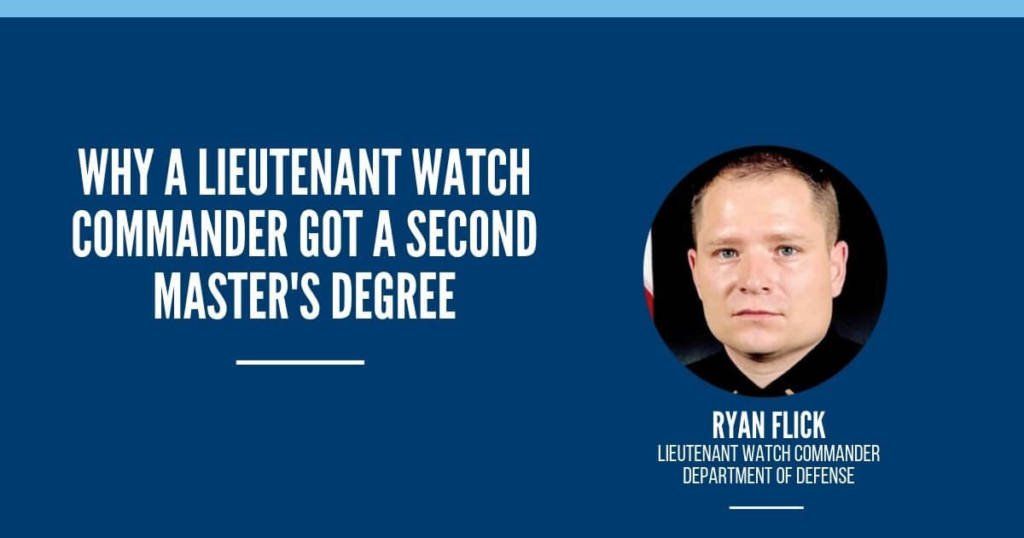Alan Mills has been working in law enforcement for 18 years and is currently a Supervisor for the U.S. Border Patrol. He is a graduate student at the University of San Diego where he is working towards a master’s degree in Law Enforcement and Public Safety Leadership. Alan believes education and well-informed law enforcement leaders to be vital components in easing police and community tensions and producing a more effective and less forceful police presence.
Why did you decide to pursue the Master of Science in Law Enforcement and Public Safety Leadership?
I served in the Navy Reserves as a military police officer and was called to active duty following the terrorist attacks on 9/11. In 2012, I utilized my Post 9/11 GI Bill entitlements to help with tuition. I went back to school and completed my bachelor’s degree in criminal justice. I enjoyed going back to school and learning about contemporary issues in law enforcement, so I decided to continue my education and pursue a master degree. Having a master’s degree from a well-known school such as USD will assist me in obtaining a promotion to a higher level of management.
With so many criminal justice programs available, what made you choose University of San Diego?
I liked USD for a number of reasons. I travel occasionally, so I liked that the program was 100% online. Plus, USD is a reputable school that ranks well, and it is a Catholic university. I like knowing that as a student and future alumni, I can take advantage of the on-campus church services for life. Traditionally, I have thought of USD as being very expensive, which has always precluded it in my mind. However, the tuition for this online program is very reasonable, comparatively. Price was a big factor for me when choosing a university, as I no longer receive assistance from the GI Bill.
What do you like best about the program so far? Is there anything you would change?
I’m currently in my third class and it’s going really well so far. Since I had just completed my Bachelor’s degree, the program started out as a refresher – but now it’s getting really focused on the job-applicable skills. For example, at the end of this week, we are writing an intra-agency memorandum to promote and create policy for the use of body-worn cameras.
Most of the professors are active law enforcement officers or attorneys currently working in the criminal justice field. They bring a wealth of knowledge to the program and always make time to assist the students. I like that it is a very contemporary degree program that teaches students current issues that face today’s law enforcement leaders. I do not think there is anything I would change about the program so far.
How do you feel about the online component?
What I really like about the online format is that I get to sit back and read about the other students’ experiences from all across the country. I get a chance to learn from the other students about how policies and procedures differ in their jurisdictions.
What skills do you think you will develop as a result of this program and how will those skills help you in the field?
I have always considered myself a good communicator, but in this program, I have learned how to employ different methods of communication depending on the situation. In every aspect of leadership, communication is important. Effective communication can create trust and build relationships with subordinates, peers, community members, and other agencies. Our ability to communicate successfully could affect the way we interact with other agencies and how we share intelligence, which it vital to public safety.
Why do you think education is important for police officers and those in law enforcement positions?
In my opinion, officers should have a minimum of a bachelor’s degree, because it could be very difficult for someone to go into a law enforcement position with only a high school diploma and academy training. Becoming a law enforcement officer comes with a lot of responsibility and authority. An advanced education in the law or criminal justice field will aid the officer in making the right legal and ethical decisions in an ever-evolving field.
Education, communication, and professionalism can assist officers to better deal with potentially violent interactions. We also learn how to de-escalate potential violent encounters, which leads to the reduction in use of force incidents. We are currently experiencing challenging times with some members of the community because of violent events, corruption, and negative media coverage. At any given time there are several lawsuits pending against state and federal governments, stemming from use of force incidents, or reports of misconduct. Most federal law enforcement agencies that require a bachelor’s degree as an employment requirement. It can be difficult to recruit educated people to become law enforcement officers. The job is very dangerous and most agents work weekends, nights, and holidays.
What advice would you give to someone in criminal justice who is considering a Master’s Degree?
Going back to school is not for everybody. Agents are busy, working 10 hours shifts, and sometimes more. Most agents have families and personal commitments. Personally, I love being in school. Creating change within my field is what inspires me to study, even when I have had a long shift. My advice is to study what interest you, and make sure you can commit the time to it. I believe that having more knowledge will not just give you a career advantage; it will make you a better person. The leadership skills gained from this program can be used in any career field.
The University of San Diego accepts students on a rolling basis in the Fall, Spring and Summer for admission into the 100% online M.S. in Law Enforcement and Public Safety Leadership degree program. If you are interested in becoming a law enforcement leader or advancing your career in public safety, consider speaking with a USD admissions advisor to learn more.




